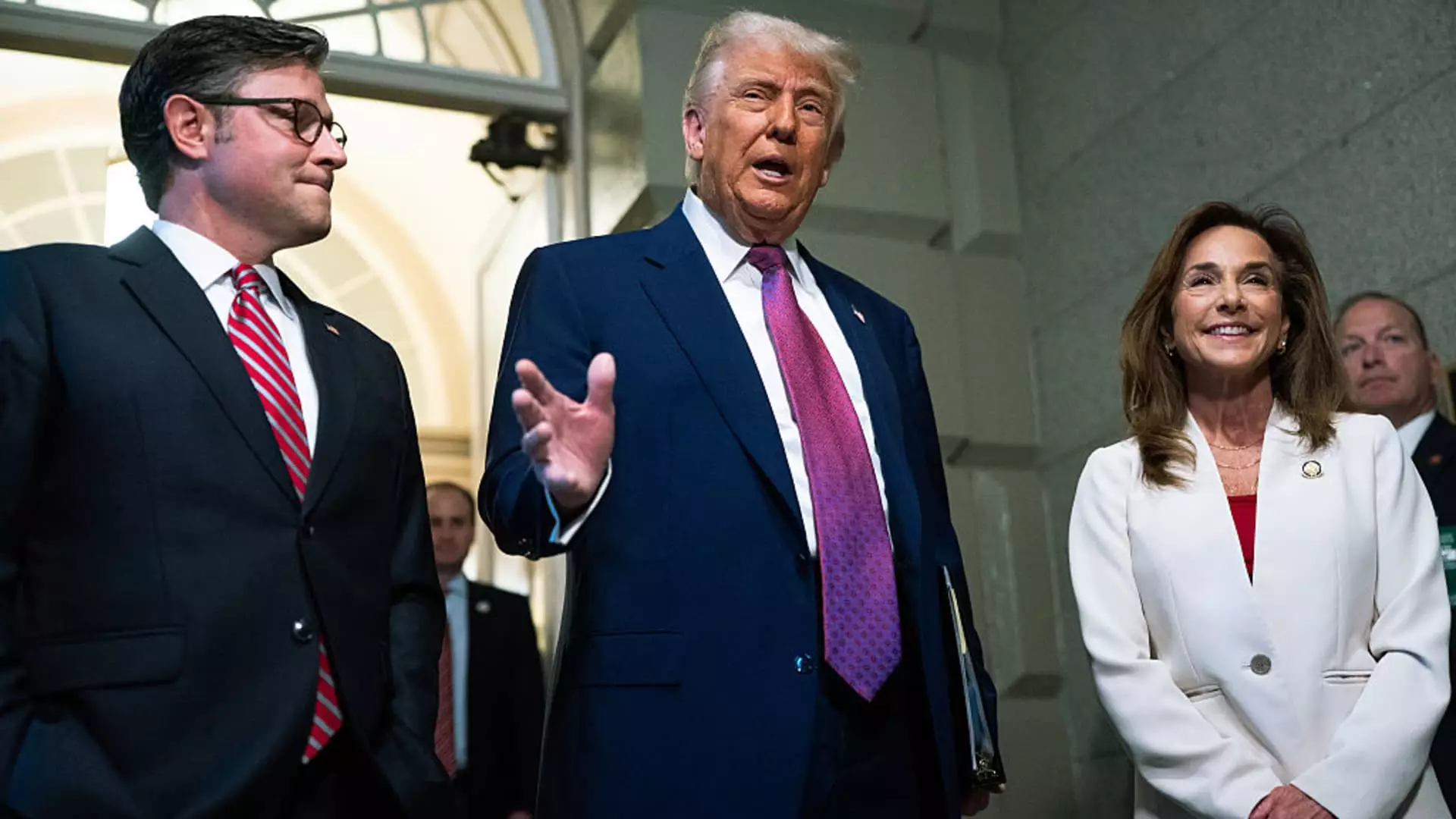The recent passage of the tax bill through the House of Representatives has sent tremors through an already vulnerable political landscape in the United States. Even as Republicans rallied to support President Donald Trump’s ambitious—yet, from my perspective, reckless—legislation, the near-unanimous Democratic opposition serves as a stark reminder of the stark partisan divide currently plaguing our governance. This narrow victory of 215-214, achieved through backroom deals and last-minute amendments, raises the question: at what cost are we crafting our fiscal future?
The bill may have been hailed as a significant achievement for the Republican leadership, but its implications for the average American are profoundly troubling. Given that each Democratic representative voted against it and even some Republican legislators dissented or strategically abstained, it is evident that this legislation isn’t the uniform triumph its backers are claiming. Instead, this bill represents the culmination of political maneuvering rather than genuine bipartisanship or concern for the populace.
Compromising Safety for Tax Cuts
What’s particularly egregious about this tax bill is its marriage of tax cuts with cuts to essential social safety programs. The Republicans in the House have carefully crafted legislation that benefits the wealthiest Americans while marginalizing those struggling to make ends meet. By imposing stricter work requirements for Medicaid recipients and fast-tracking these changes to 2026, the bill seeks to punish the vulnerable under the guise of fostering responsibility.
The argument that cutting funds from the social safety net is a path to economic growth is not only simplistic but also dangerous. A recent analysis from the Congressional Budget Office indicates that the wealth disparity will worsen under this bill, with resources draining away from the lowest income decile and funneling toward the upper echelon. How can we possibly justify a tax strategy that rewards those who need it the least while dragging the impoverished down further into poverty?
The Illusion of Economic Prosperity
Supporters of the bill, including Republican Rep. Mike Lawler from New York, have claimed that the changes—particularly the increase in the SALT deduction cap—will resonate well with constituents and “kick-start our economy.” Yet, this optimism feels disingenuous when the overall fiscal responsibility of such proposals is called into question. A bill that feeds the wealthier few doesn’t create a stable economic environment for the working and middle classes.
It is illogical to suggest that enacting tax breaks for those making under $500,000 will automatically shield our economy from catastrophic deficits. Markets are already reacting negatively, as evidenced by the tumble they took ahead of the bill’s passage. Such apprehension hints at the reality that short-term tax relief may lead to long-term fiscal chaos. When real investment in infrastructure, education, and health care is deprioritized in favor of yet more tax cuts, it is the average American who suffers—and this will reflect poorly on the future of our national economy.
A Risky Path Through the Senate
While the Republicans may consider this vote a strategic success, they are unprepared for the complex journey that lies ahead in the Senate. The Senate’s requirement for financial reforms, even under budget reconciliation, sets up an uphill battle for a party too often caught between its hardline and moderate factions. Many senators have already made it clear that they expect significant changes to the bill. Will these required adjustments lean toward benefiting the average working American, or will they dilute the remaining efforts to offer genuine support for the economic majority?
As the political theater unfolds, it remains to be seen how this volatile coalition led by Speaker Mike Johnson will hold up against its own internal disagreements. The sad reality is that the everyday citizen’s welfare is often the last consideration in the high-stakes poker game of politics. As we watch this tax bill evolve—or potentially implode—we should demand a fiscal strategy that lifts all Americans rather than a select few. Clarity of intent and genuine dedication to equitable solutions are paramount, even when the political winds blow favorably.


Leave a Reply